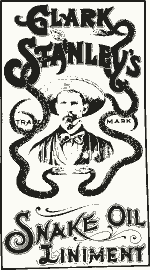Most of us have heard, “They can talk the talk, but can they walk the walk?” In other words, talk is cheap and results are the real way to judge. Those who merely talk are hypocrites.
The phrase implies it’s easier and more common to talk the talk than walk the walk. Flash is easier to achieve than substance.
But I’m not so sure that is true. At least not in the non-profit world. It seems to me there are far more people walking the walk than talking the talk.
I know a lot of people who are doing great things around the world. They are feeding the hungry, serving the sick, teaching kids, creating jobs for the unemployed, sharing their faith … the list goes on and on.
Curiously, very few of them are good at sharing their story. Doing something tangible is easier for them than doing the self-promotion it takes to gain attention for their work.
Is that so bad? I don’t think so.

But it still presents a problem. Their walk is impressive but their talk needs a lot of work, so we ignore them. Like moths to a flame we are drawn to the slick talkers, the ones who package themselves with a cool look, those in the trendy movement, or the snake oil salesmen who offer a simplistic solution. Then the people doing great work are ignored because they seem uncool, awkward, perhaps a bit out of touch.
So who are the hypocrites here? Those who walk the walk? No. The talkers? Perhaps, but not always.
The real hypocrites are all of us who say we want to change the world, but then adapt to the ways of the world as we choose who to follow, who to support, who to cheer on.
We consume massive amounts of marketing, then lose perspective on what is true. We embrace image over substance. We reward the slick packaging, the aggressive recruiter, the charismatic talker, and the good story teller.
Meanwhile, the people who are really walking the walk are ignored. It’s sad to penalize people who are doing good work just because they can’t tell a good story.
Want examples?
– A recent social networking effort to promote worthy non-profits was a venue for voting who had the best “feel good” story to promote. It wasn’t about who was doing the best work, it was about who had the most compelling narrative.
– A significant advocacy group is better at gathering ink in the press than make real changes in society. The headlines are exciting and compelling; the actual work on the ground is often misguided.
– A video promoting a simplistic agenda can go viral while people with 30-years of experience in the field go ignored. Millions rally to the “cause” but nobody really knows what to do about it.
The list goes on and on.
So where am I going with this rather defeatist post? Two thoughts, one as a person often trying to “talk the talk” and one as a consumer of marketing programs.
As a leader of PathLight, I want our talk to be consistent with our walk. It means best practices should be applied to both our presentation and our work in the field. One informs the other as we get feedback from those we serve and those who support us. I’m not perfect — my talk can get ahead of my walk sometimes. But people around me pull me back when that happens.
But what about as a giver? How do I discern the clever talk from the effective walk? I go back to my faith. I try my best to seek God’s direction about giving. Oh sure, I can be drawn in by the charismatic speaker with the clever pitch as easily as anybody. But discernment is a skill that grows with God’s help, and eventually I see through the marketing.
Understanding who is really walking the walk is about prayer and discernment. It’s not about rejecting somebody because they are awkward, uncool, or boring. It’s not about accepting somebody because they have clever packaging, a glib presentation, or are in a trendy cause.
I assume those who can talk the talk are good folks, but I don’t support them based on that alone. I want to support those who walk the walk.
Curiously, there are millions of people who qualify. They are better at walking than talking. Thank God.
